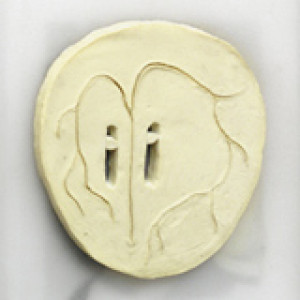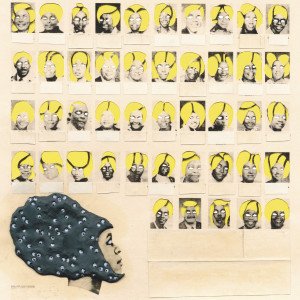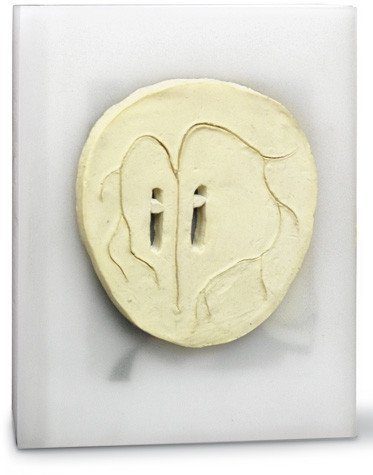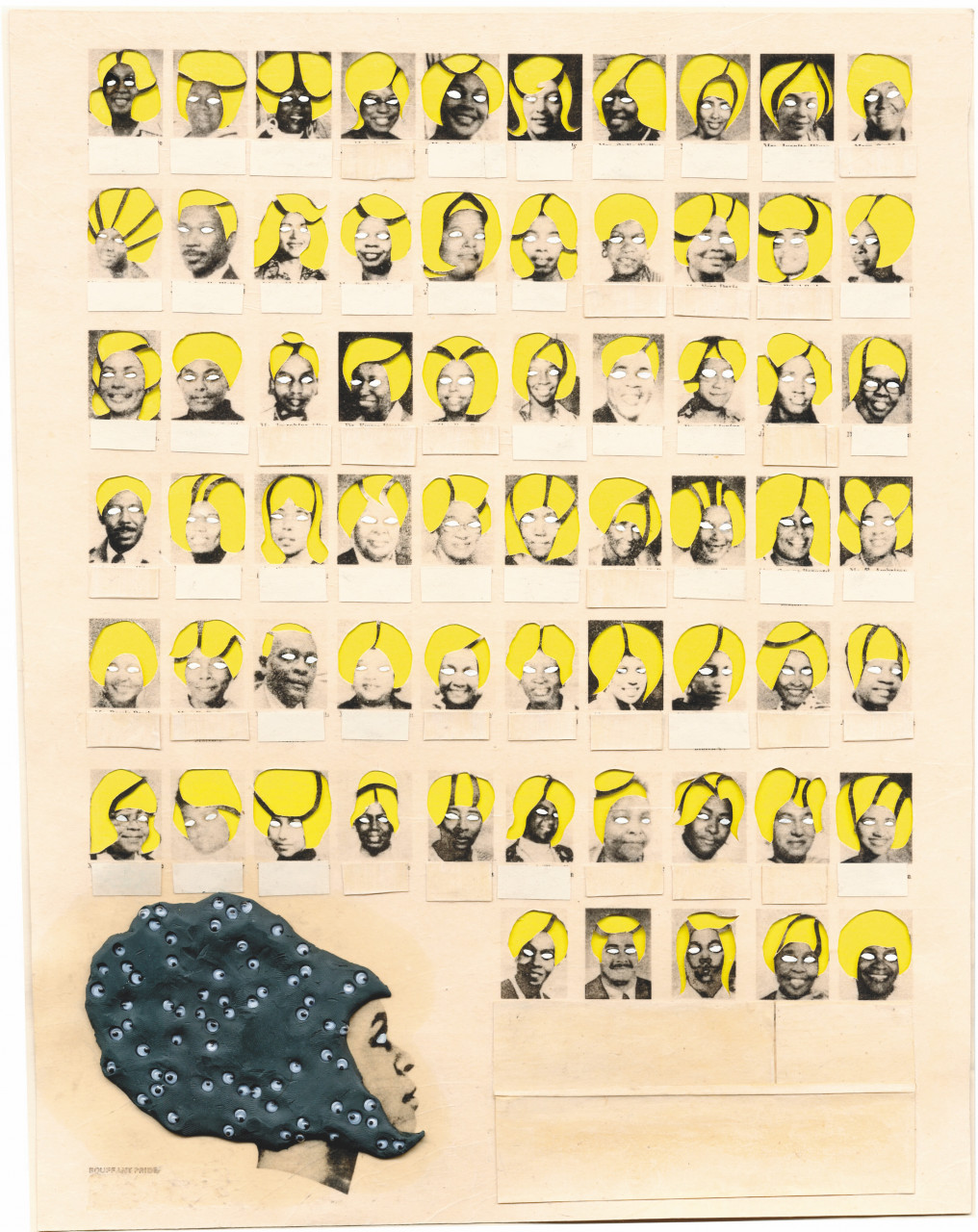Ellen Gallagher
Ellen Gallagher, born 1965 in New York, lives and works in New York.
Ellen Gallagher Editions
Bouffant Pride
2002
Published for the 50th Venice Biennale
Handmade collage with cut-out, painting and photogravure on rag paper, 34 x 25.5 cm (13½ x 10 in). Edition of 20, signed and numbered.
Ellen Gallagher’s edition Bouffant Pride is a striking collage that examines the legacy of African American stereotypes and the ways beauty and identity have been marketed within Black communities. In this work, Gallagher appropriates a 1960s wig advertisement from Ebony magazine – an influential publication geared toward African American audiences – and transforms it into a surreal, critical meditation on representation.
The original portraits have had their hairstyles meticulously cut away and replaced with shapes that reveal a layer of bright yellow paper beneath. These cutouts, echoing the forms of wigs or stylized hairdos, range from playful to abstract, challenging the uniformity and commercialized glamour of the source material. Gallagher further alters the faces by cutting out the eyes, leaving blank white voids that render the figures both depersonalized and uncanny.
In the lower left corner, a larger profile of a woman’s head is sculpted in plasticine, her bouffant hairstyle embedded with toy eyeballs that create a playful yet eerie texture. Through her use of materials like plasticine, googly eyes, ink, and layered paper, Gallagher completely reimagines the ad's original promise of transformation and beauty. Bouffant Pride becomes a layered critique of media, race, and identity – uncovering how surface and stereotype intertwine, and inviting viewers to see beyond them.
This work is part of the collections of the Whitney Museum of American Art, New York, and the Smithsonian National Museum of African American History and Culture, Washington, D.C.



